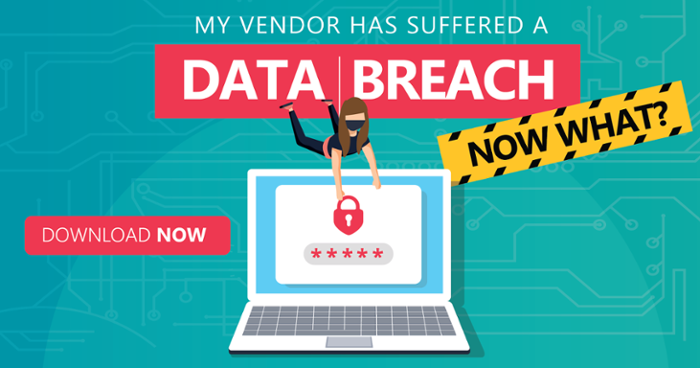Finastra, one of the largest fintech companies in the world, was subjected to a ransomware attack on March 20, 2020. How attackers compromised Finastra’s systems has not been released at this time, but Bad Packets, a cyber threat intelligence firm, reported earlier this year that multiple Finastra servers had unpatched vulnerabilities related to Citrix and Pulse VPN.
According to a statement by Finastra’s Chief Operating Officer, Finastra responded to the incident by severing network connections for impacted servers and impacting services for some customers, but not all. Finastra so far does not believe any customer or employee data was exfiltrated, but the investigation is ongoing.
Consider Third-Party Data Breaches
While your organization may not have been directly impacted by this outage, incidents such as these often provide opportunities to work with all your third parties to ensure their control environments are, at a minimum, as mature as your organization’s own.
To verify their control environment is adequate, do the following:
- Review contract language to ensure penalties are in place for failure to implement appropriate security
- Assess control environments to validate critical security controls are in place
- Review executive summaries of recent penetration testing and vulnerability scanning and request evidence that findings have been remediated or have a set deadline for remediation
- Ensure that incident management, business continuity and disaster recovery plans are in place to help vendors meet their contracted service level agreements (SLAs) and that documented breach and downtime notification procedures exist to keep you informed of business impacting events
Remember, don’t let your vendors be your weakest link. Assess their cybersecurity plans often, at least annually, and determine if they’re sufficient. If they aren’t, be sure to discuss the deficiencies with the vendor and a plan of action to resolve the issues. Be proactive as you don’t want a third-party data breach to be the cause of a reputational hit or operational halt.
Additional Resources
Sources
How Venminder Can Help
Venminder offers several control assessments to help organizations monitor the cybersecurity controls implemented by vendors such as Finastra. The Point-in-Time Cybersecurity Analysis (CSA) offered by Venminder reviews evidence from the vendor surrounding their patch - and vulnerability-management programs and policies. The Business Continuity Analysis (BCA) reviews evidence from vendors surrounding their ability to maintain adequate levels of service in the event of an incident such as what happened at Finastra. The Privacy Analysis (PA) and Information Security and Privacy Assessment (ISPA) combine all the above into comprehensive views of the vendor’s control environment.
Not only does Venminder review evidence that an organization has a documented patch management program (ISPA, PA, and CSA), but Venminder also requests that organizations provide details surrounding security testing performed to validate that patches have been installed and vulnerabilities mitigated. This includes ongoing vulnerability scanning and penetration testing to validate third party vulnerabilities are not present (ISPA, PA and CSA), as well as application security testing to address vulnerabilities in internally developed programs (ISPA).
Venminder also reviews evidence that a vendor has documented recovery time and recovery point objectives (RTO/RPO) in place to meet SLAs, and verifies that standard methods of technology and personnel recovery are in place and tested regularly to validate the vendor’s ability to achieve those objectives (ISPA, PA, BCA).
Venminder Contract Compliance Reviews not only assess contracts to ensure the right to audit is included and service-level agreements are in place, but also notates when either is not included within the agreement. The reviews also include ensuring vendors contractually agree to test and maintain their BC/DR plans, perform data backups, and disclose resumption timing such as recovery point and recovery time objectives.
In addition, Venminder has partnered with Security Scorecard to offer clients the ability to receive results of independent vulnerability scanning to validate a vendor’s external security posture. This is a great way to verify that a vendor has operationalized their documented policies around vulnerability management and mitigation.
For further reading on what to do when a vendor has suffered a data breach, download this infographic.



















